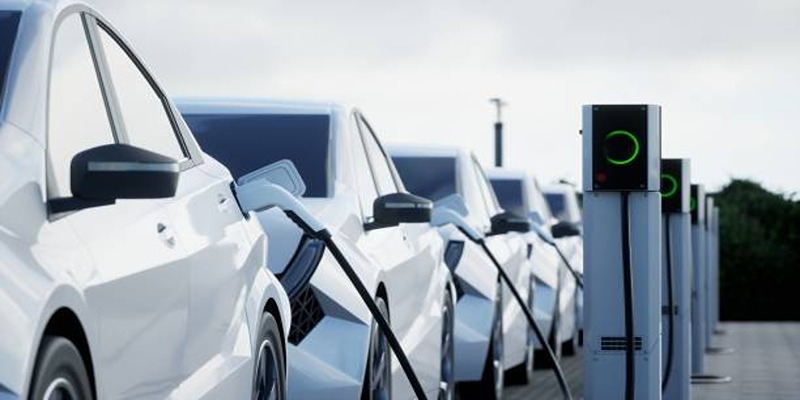Electric cars are becoming more popular as people look for cleaner and more efficient ways to travel. They use electricity instead of gas, which helps reduce pollution and save money on fuel. Many believe electric cars are the future, but it’s important to understand both their advantages and challenges. From lower running costs to the need for better charging stations, there’s a lot to consider. This guide explores the costs and benefits of electric cars to help you decide if they could be the right choice for you.
Costs of Electric Cars

While electric cars have numerous benefits, they also come with some costs that should be considered before making a purchase. These include:
- Higher up-front cost: The electric cars are relatively more costly at compared to the conventional gasoline-powered vehicles. This is due to the number of components used in developing electric car technology are still expensive, with batteries more expensive than they need to be.
- Charging time and availability: Unlike filling up at a gas station, charging an electric car can take several hours. And while there are more charging stations being built, they are still not as widely available as gas stations.
- Maintenance and repair costs: Electric cars have fewer moving parts compared to traditional cars, which means they require less maintenance overall. However, if something does need to be repaired or replaced, it can be more expensive due to the specialized nature of electric car components.
It’s important to factor in these costs when considering whether an electric car is right for you. While the initial cost may be higher, keep in mind the potential long-term savings on fuel and maintenance expenses.
Benefits of Electric Cars
Now let’s explore some of the benefits that come with owning an electric car:
1. Lower Running Costs
Electric cars are generally much cheaper to run compared to gas-powered vehicles. Electricity is more affordable than gasoline, and the cost per mile for an electric car is significantly lower. Additionally, many regions offer reduced electricity rates for charging during off-peak hours, further decreasing costs. Over time, these savings can add up significantly, offsetting the initial purchase price.
2. Environmentally Friendly
One of the main reasons people opt for electric cars is their positive impact on the environment. Electric vehicles (EVs) produce zero tailpipe emissions, helping to improve air quality, especially in urban areas. By using renewable energy sources like solar or wind to charge your EV, you can further reduce your carbon footprint, making electric cars an environmentally sustainable choice.
3. Quieter Driving Experience
Electric vehicles are known for their quiet operation. Unlike gas-powered cars, which rely on internal combustion engines, EVs use electric motors, resulting in a smoother and much quieter driving experience. This can reduce noise pollution, particularly in busy cities, and make driving more comfortable for both the driver and passengers.
4. Government Incentives
Many governments worldwide provide financial incentives to encourage the adoption of electric cars. These incentives include tax credits, rebates, and exemptions from certain fees, making EVs more affordable for buyers. Additionally, some regions offer perks like access to carpool lanes, free parking, or reduced toll fees for electric vehicle owners.
5. Instant Torque and Acceleration
Electric motors provide instant torque, meaning they can accelerate quickly from a standstill. This feature makes electric cars great for city driving, as well as merging onto highways or passing on the road with ease. The smooth and seamless acceleration also adds to the overall driving experience of an electric car.
6. Access to Innovations
The rise in electric car popularity has led to significant advancements in automotive technology. Modern EVs come equipped with state-of-the-art features like advanced driver-assistance systems, over-the-air software updates, and high-tech infotainment systems. Owning an electric car often means benefiting from the latest innovations in the auto industry.
7. Energy Independence
Electric cars allow individuals and nations to reduce their dependence on fossil fuels, which are a finite resource subject to fluctuating prices and geopolitical tensions. By relying on locally generated electricity—potentially from renewable sources—electric cars contribute to greater energy security and independence.
8. Reduced Dependence on Fossil Fuels
With gas-powered vehicles, we rely on limited fossil fuels for our transportation needs. Electric cars offer an alternative by using electricity from renewable energy sources like solar and wind power. By switching to electric cars, we can reduce our dependence on fossil fuels and help mitigate the effects of climate change.
Challenges to Consider

While electric cars have numerous benefits, there are also challenges that need to be addressed in order for them to become a more widely adopted form of transportation. Some of these challenges include:
- Battery Range and Charging Infrastructure: Electric cars currently have a limited driving range on a single charge. Additionally, the availability of charging stations is still not as widespread as gas stations, making it challenging for drivers to take long trips.
- Cost and Availability of Batteries: The high cost and limited availability of batteries can make it difficult for manufacturers to produce affordable electric vehicles at scale.
- Time-consuming Charging Process: Unlike refueling at a gas station, charging an electric car can take several hours. This makes it impractical for drivers who need to make frequent or long-distance trips.
- Disposal and Recycling of Batteries: Electric car batteries have a limited lifespan and eventually need to be disposed of or recycled. Proper disposal methods must be developed to prevent environmental harm.
- Weather Conditions: Extreme temperatures can affect the performance and range of electric cars, making them less reliable in harsh weather conditions.
Despite these challenges, there is ongoing research and development in the electric car industry aimed at addressing these issues.
Conclusion
While electric cars face several challenges, they represent a significant step toward a sustainable and eco-friendly future. Advances in technology and increasing investment in renewable energy are helping to address many of the existing barriers, such as improving battery efficiency, expanding charging infrastructure, and reducing costs. With continued innovation and collaboration among governments, industries, and consumers, electric vehicles have the potential to play a crucial role in reducing greenhouse gas emissions and transitioning to a cleaner, more sustainable transportation system.





